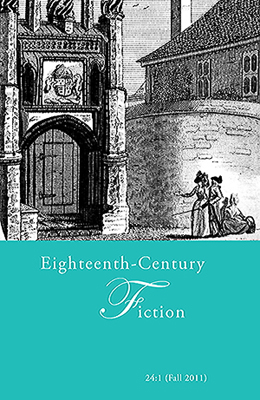Description
Publication by DPDF 2010 “After Secularization: New Approaches to Religion and Modernity” Fellow Alex Eric Hernandez.
The postscript to the 1751 edition of Clarissa provides Samuel Richardson’s most definitive explication of what he was doing through the novel’s unfashionably tragic turn. This essay considers his project in light of the period’s taste for narratives that culminate in poetic justice, arguing that the postscript identifies such notions of moral compensation as symptomatic of an age of scepticism. Richardson is thus engaged in reimagining older modes of providence at odds with middle-class values of exchange and an ascendant providential economy, fashioning a distinctive mode of tragedy that drew on both classical and biblical sources in which the very form of his novel interrogates bourgeois cultural norms. In this way, he queries the relations between eighteenth-century theology, early capitalist political economies, and moral action being negotiated through the novel’s formation.

